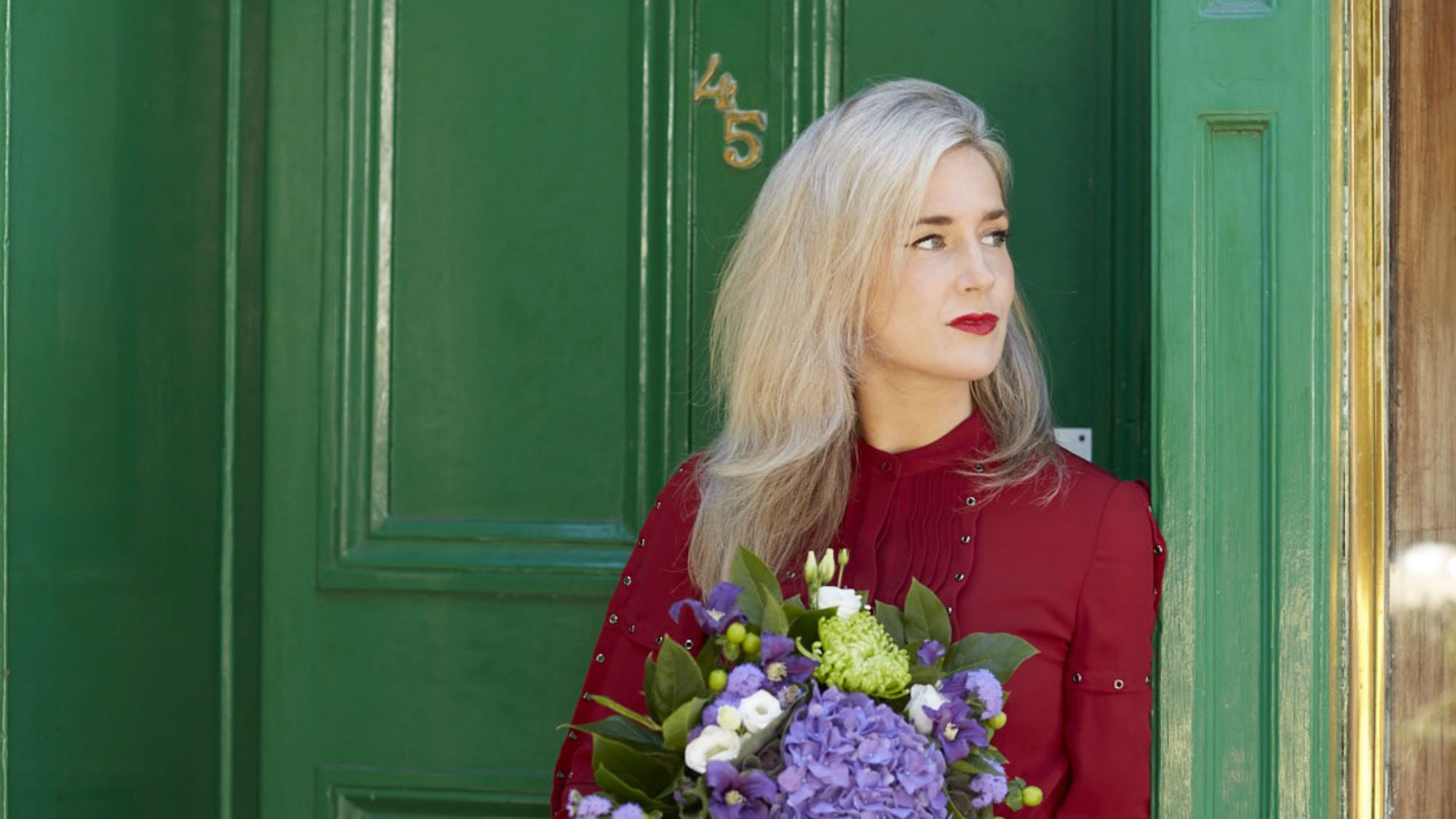Anna Whitehouse: We must start talking about menopause at work
With too many women leaving the workplace in their 40s and 50s, Mother Pukka Founder Anna Whitehouse discusses what needs to change


Celebrity news, beauty, fashion advice, and fascinating features, delivered straight to your inbox!
You are now subscribed
Your newsletter sign-up was successful
With too many women leaving the workplace in their 40s and 50s, Mother Pukka Founder Anna Whitehouse discusses what needs to change
Heart palpitations, brain fog, piercing headaches — many of the symptoms of menopause can make everyday life much harder, especially in the workplace.
Menopause and job loss isn't a joke. At current, as they face the condition, 1 million women in the UK are thinking of leaving their jobs. You'd assume it's because they're struggling with their symptoms, but it's not just that. It's also because of the undeniable lack of sympathy most experience from employers at this inevitable stage of their lives.
“What I've heard across the board is that women are stepping down, logging off and shutting down careers they have fought hammer and tongs for, because their employer doesn't understand the menopause,” says Anna Whitehouse, writer and founder of parenting website Mother Pukka. “The focus is to not discriminate around motherhood — we’ve vaguely got that one in our minds now. But almost immediately after that, we are losing women aged 40 to 50 in droves.”
In 2015, Anna launched the Flex Appeal: a campaign pushing for flexible working for all, in a bid to reduce stress-related burnout and increase productivity. More recently, she’s spoken up about the fact that flexible working isn’t just a solution for parents.
“Closing the gender pay gap isn’t just about supporting mothers through birth and beyond,” Anna wrote in a post on Instagram, where she currently has more than 340k followers. “It’s about supporting women at every stage of their lives.”
Here, Marie Claire catches up with Anna to find out more about what needs to change to keep women from having to abandon their careers, as well as what we can do as individuals to support menopausal women at work.
Anna Whitehouse: "We must start talking about menopause at work"
It all comes down to business
According to Anna, sexism at work still prevails, especially when it comes to particular stages in a woman’s life. “You hit these barriers in an employer's eyes, like childbirth and the menopause, and suddenly become redundant, regardless of whether or not you've actually been made redundant within your workplace,” she says. “This happens in a way that men don't face at all. Biologically, they are considered the same, if anything they just become a ‘silver haired Fox’. Boardrooms are full of ageing men.”
Celebrity news, beauty, fashion advice, and fascinating features, delivered straight to your inbox!
In fact, a lack of women in leadership positions is actually harmful to a company’s bottom line. According to a study by Peterson Institute, companies with more female leaders make more money. The research revealed that, compared to companies with no female leaders, those with a 30% female c-suite were associated with a 1% increase in net margin — which translates to a 15% increase in profitability for a typical firm.
“It all comes down to business,” says Anna. “That's the bit that I'm frustrated about: the conversation gets wasted on what can we do for women? It's like, no, what can you do to help us make more money for you?”
Part time isn’t a step back
One of the most critical things that needs to change is our attitudes to part time workers. Moving into a flexible or part-time role can help women get the respite and support they need to handle biological junctures, whether that’s having children or the menopause. “In doing that, we then don't get promoted, because part timers are seen as slackers,” says Anna.
Of course, this idea is far from the truth.
“Being part time doesn’t mean you are part invested in the job, you just do fewer days and you get paid less for that,” says Anna. “So I think it's about really supporting that narrative and ensuring that women still get promoted when they work part time.”
On the flip-side, it’s just as important to address the stigma surrounding men going part time at work. As recent studies have demonstrated, when men work less, they pick up a greater share of domestic labour. Anna believes we need to “empower men to know that it’s not emasculating” to drop their hours and “support women through whatever junction they’re going through”.
The importance of language
The language we use can shape attitudes and perpetuate outdated stereotypes. Anna illustrates: “I've never been able to step outside of being a ‘mommy blogger’. My husband has done exactly what I have been doing and he's never been called a ‘dadfluencer’ or or ‘daddy blogger’.”
The power of language is why talking about the menopause, even just using the word in everyday contexts, can help tackle some of the damaging embarrassment around the subject. “I would like to see programmes across public and private sector businesses that actually put the word menopause into HR documents,” says Anna.
Making macro shifts
We need more women in politics, so that our policy makers fully understand the issues they face. For example, Labour MP Stella Creasy has repeatedly championed mothers at work. Her #ThisMumVotes initiative united women on social media as they shared examples of "mum shaming" they'd experienced in the workplace, while her latest campaign VoteMama UK aims to help more mums get in to politics.
“There's so much the government can do, but culturally, I want to see a shift,” says Anna. “I think the quickest way to shift things is actually empowering employers to understand what the menopause even is. That it’s not a dirty little secret or something embarrassing to be swept under the table. That it doesn't affect a woman's mind, her experience or her brilliance within her profession.”
By helping women to continue to thrive at work, increasing workplace understanding of the menopause will help to close the gender pay gap. Importantly, we mustn't consider this particular biological shift in isolation, but should recognise that women move through various biological junctions throughout their working lives. Anna says:
“I want full understanding of the processes women go through, from periods right the way through to menopause. If you really care about closing the gender pay gap, this is what companies need to focus on. These junctions in a woman's biology are why we have a gender pay gap. It's that simple.”
Whether you're currently going through the menopause or not, it's an issue that impacts all women, men and even the bottom lines of the businesses they work for. So let's join Anna in her push for change, and keep the conversation going.
